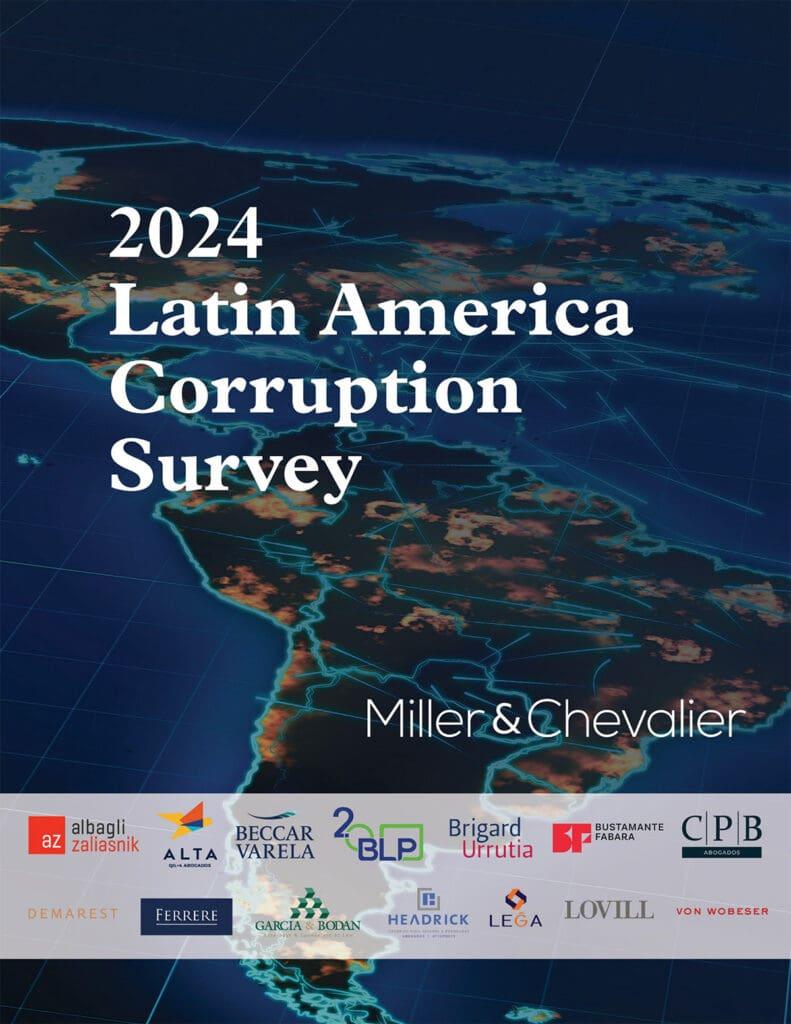
What comes first, compliance or enforcement?
2024 Report
Latin American Corruption Survey
What’s in this report from Miller & Chevalier:
Corruption remains pervasive throughout Latin America despite sustained efforts to criminalize, investigate and prosecute misconduct, according to Miller & Chevalier’s survey. In fact, corporate compliance — not enforcement — is the key driver for addressing these endemic issues.
The report measures perspectives on how corruption impacts companies’ ability to do business in the region. The report, which builds on previous surveys dating back to 2008, reveals that nearly half of all respondents view corruption as a significant obstacle to doing business and less than a third say the U.S. Foreign Corrupt Practices Act (FCPA) or other anti-corruption laws significantly mitigate corruption risk.
Here are some other key findings:
- Despite ongoing efforts, corruption remains widespread across Latin America, posing significant barriers to conducting business. Nearly half of respondents cite corruption as a substantial obstacle, with 41% reporting lost business opportunities to competitors engaging in illicit practices.
- While the effectiveness of anti-corruption laws is debated, there’s growing sentiment that these laws are making a difference on the ground. Less than a third see significant risk mitigation from laws like the Foreign Corrupt Practices Act. However, 40% now perceive these laws as effective in their respective countries, up from 30% in 2020.
- Corporate compliance – not enforcement – is combatting corruption. Nearly 80% of respondents have basic compliance measures in place, and notably, a majority of companies are integrating more sophisticated compliance strategies for the first time in the survey’s 16-year history.


